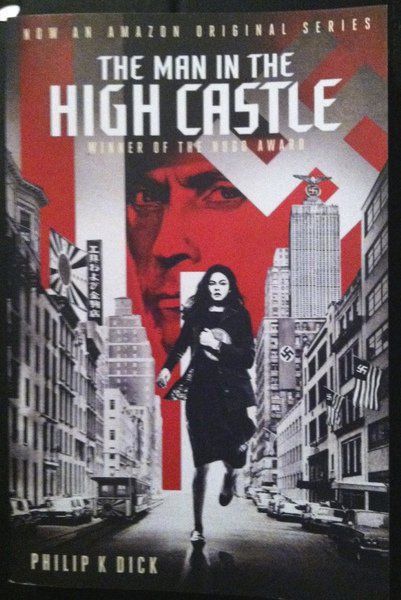BOOKS: The Man in the High Castle: Philip K. Dick
Published 12:00 pm Saturday, October 12, 2019

- The Man in the High Castle
After watching a couple of seasons of the Amazon series, “The Man in the High Castle,” a revisit of Philip K. Dick’s 1962 novel of the same name seemed in order.
Given the brevity of the book, the series planned four seasons expand on Dick’s novel in fascinating ways. One of the immediate changes, and an important one, is the character of the Man in the High Castle develops films of an alternative reality in the show rather than a book of an alternative reality as he does in the book.
Trending
The book and the series imagine a world where the Nazis and Japanese won World War II. The United States fell. The Japanese occupy the West Coast. Nazi Germany occupies the East Coast. The Midwest is a vague middle region neither fully occupied nor free. Slavery has returned. Africa is the smoldering site of a second Holocaust. The Germans have begun exploring space.
Dick zeroes in on a handful of characters. Some of the characters are involved or touched by the antiquities business. The narrative explores the authenticity of historic items.
For example, what is the difference between a handgun used in the Civil War and an exact replica created now? Only a certificate of authenticity claims one as having historic value. Otherwise, they are essentially the same.
The concept speaks to a theme throughout the book.
As readers, we know the Nazis and Japan lost World War II. As we read this book of an alternate reality, the book’s characters read a controversial book of an alternate reality for their world.
“The Grasshopper Lies Heavy” is a popular book in occupied America that imagines the Allies won the war. The book within a book closely resembles what happened in our world. The author of “Grasshopper” is known as the Man in the High Castle.
Trending
It may sound confusing but Dick makes easy-to-follow sense and suspense of metaphysical concepts. So does the show.
“The Man in the High Castle” is still a fascinating book, frightening in how easily what we take as a given past could have been different due to a dramatic or even subtle shift in events.
Another intriguing concept is the realization that we can read or watch an alternate reality of the Axis winning World War II as an intriguing entertainment but in the world of “High Tower” reading an alternative reality is subversive and runs afoul of the state.
What we can freely read, watch and discuss as a fascinating concept can lead to execution had the war gone another way. Read and watch “High Castle” as an expression of freedom and weigh the fickleness of fate.





